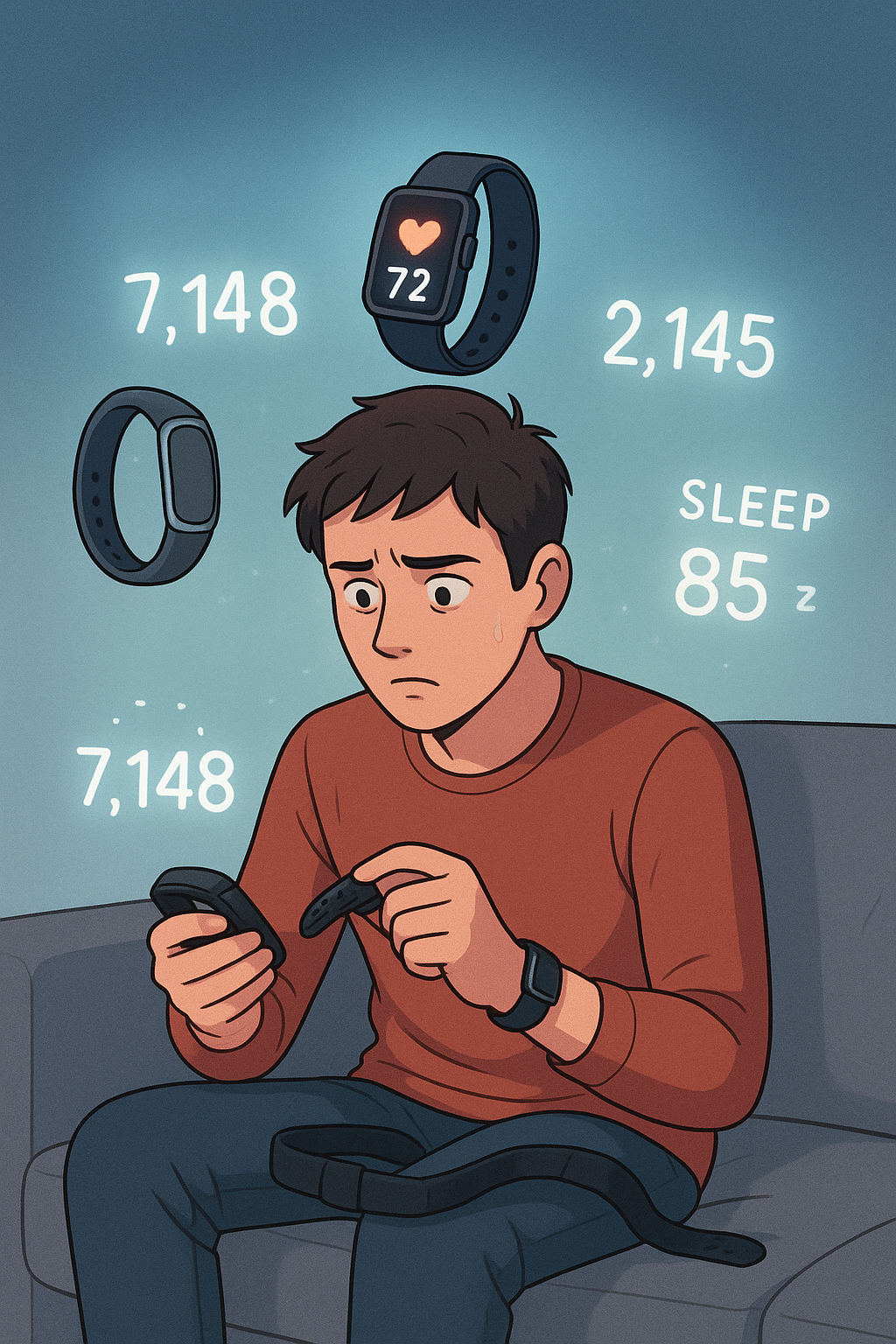Introduction
Smartwatches, fitness trackers, and smart rings are everywhere. They count our steps, track sleep, monitor heart rate, and even check blood oxygen. These gadgets aim to keep us healthy—but sometimes they have the opposite effect. Many people now face “wearable overload” where excessive tracking causes stress, worry, and even unhealthy habits.
Why Wearables Are So Popular
- People crave real-time health data.
- Devices claim to improve fitness, enhance sleep, and even provide early warnings about health issues.
- Popular brands like Apple Watch, Fitbit, Garmin, and Oura Ring sell millions each year.
The concept is straightforward: seeing numbers allows us to enhance. But paying too much attention to numbers can lead to issues.
The Hidden Side: Psychological Effects
1. Number-Induced Worry
When your watch indicates you’ve walked less today, you might experience guilt or stress—even if you’ve had a busy healthy day.
2. Sleep Stress
Many individuals struggle to sleep well because they’re concerned about achieving a “good sleep score.” , monitoring sleep can worsen sleep quality.
3. Goal Fixation
Completing rings, winning badges, and reaching targets can become habit-forming. Some people push themselves too hard just to see a number change.
4. Data Misinterpretation
Wearables aren’t always right. Misreading data (like sudden heart rate jumps) can make you worry for no reason.
5. Missing Out on Life’s Simple Pleasures
If you’re always checking your tracker, you might not enjoy basic activities like a walk in the morning or a yoga session—because you’re too busy looking at numbers.
Red Flags That You’re Overdoing It
- Looking at your device too often each day.
- Getting frustrated when you don’t hit your step or calorie targets.
- Having trouble sleeping because of “poor scores.”
- Relying on your gadget instead of tuning in to your body.
- Always measuring yourself against others’ data.
Tips for Using Wearables the Right Way
✅ Set achievable goals – Avoid aiming for unrealistic numbers.
✅ Reduce alerts – Excessive notifications can lead to anxiety.
✅ Give yourself breaks – Go a few days without tracking.
✅ Keep in mind: it’s not a doctor – Wearables can offer guidance, but they can’t substitute medical advice.
✅ Focus on long-term improvement – Daily fluctuations matter less than overall progress over time.
✅ Stay present – Value the activity itself, not just the data it generates.
Expert Advice
Mental health experts advise: Treat wearable devices as assistants, not bosses. If you experience anxiety, remorse, or fixation, take a breather. Technology should aid you—not dominate you.
To wrap up
Fitness trackers are potent instruments. They can inspire you, boost your daily habits, and even warn you about health issues. But moderation matters. Using them too much can damage your mental wellbeing more than it benefits your physical health.
